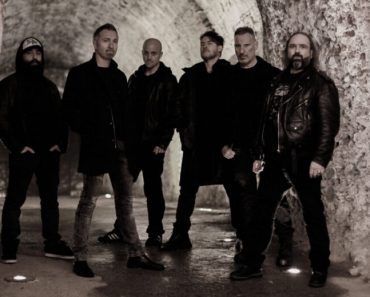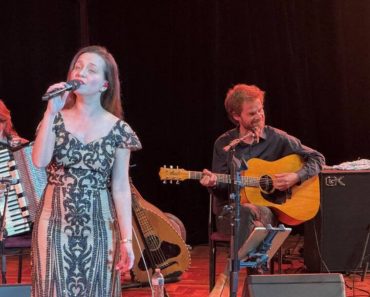
The 10th anniversary of the Koufonisia Classical Music Festival culminated in a spellbinding concert on the uninhabited island of Keros, a sacred and protected archaeological site in the Cyclades.
For thousands of years, Keros has remained a silent witness to the earliest chapters of Aegean civilization, a place where ritual, music, and artistry first intertwined. Long before the rise of the Minoans, the island was a hub of ceremonial activity, leaving behind remarkable Cycladic figurines, including harpists and flutists, that reveal a society attuned to sound, rhythm, and sacred expression.
On this extraordinary stage, music returned for the first time in millennia, bridging the island’s distant past with the living present.
An Island Older Than the Minoans
Keros is not merely a backdrop—it is an actor in its own story. The rugged hills, arid terrain, and wild Aegean seas create a natural stage that responds to every note.
Archaeological finds suggest the island was a sacred gathering place, a site for offerings and rituals that connected Cycladic communities. Here, amid abandoned shepherd dwellings, renowned soloists and ensembles performed a program titled “Five Millennia of Greek Sound,” weaving ancient chants, Byzantine hymns, and modern compositions into a transcendent dialogue across time.
Attendance was strictly limited and carefully managed. Festival organizers chartered boats to ferry spectators to the island, off-limits to the public since 1992. Strong northerly winds delayed the performance by a day, but meticulous planning and local support ensured a flawless execution on Wednesday, September 10.
Music and Myth Intertwined
The orchestra, hovering between reality and myth, breathed life into Keros’ silent history. Improvisations on ancient Greek instruments such as the diavlos, lyre, and harp opened the concert with the First Delphic Hymn to Apollo. After 90 minutes, the performance closed with the hymn from the Divine Liturgy of St. John Chrysostom, leaving the audience immersed in a ritual-like communion with time itself.
Festival director Michalis Marmarinos reflected on the island’s quiet power:
“Keros imposes its own silence. It draws you in. Being here, we felt a profound connection—not just to the space itself, but to the gestures of those who lived here thousands of years ago.”
A small Cycladic figurine dating to 2600–2800 BCE, with a raised cup, symbolically connecting performers and audience with the island’s distant past, echoing gestures that have endured across millennia.
Ten Years of Cultural Legacy in the Cyclades
The festival’s 10th edition reinforced its role as a cultural beacon in the Cyclades. From August 20 to September 10, seven concerts, a temporary exhibition, and educational programs for local children showcased Greece’s musical heritage. Artists included the Polis Ensemble, Harper Trio, MusicAeterna Byzantina Choir, Oros Ensemble, Ribale Wehbe, and soloists such as Dimitris Desyllas, Sokratis Sinopoulos, Dimitris Tiliakos, Olia Lazaridou, George Tabakis, Callum Armstrong, Miltos Logiadis, and Sophia Avramidou, alongside rising talents from Greece and abroad. The repertoire spanned ancient compositions to contemporary works, illustrating the festival’s commitment to the continuity of Greek musical creation.
Artistic director Cornelius Michaelides described the festival’s broader mission:
“We aim to offer visitors an experience beyond beaches and taverns. We want the local community to access the same cultural and educational opportunities as city residents. At its core, the festival reconnects this region with its historic past.”
Experiencing History Through Sound
Every element of the performance—from the boat ride to the silent pilgrimage across Keros—enhanced the audience’s sense of reverence. The island itself became part of the orchestra, with gusts of wind, echoes off stone, and waves adding to the music’s texture. Visitors felt transported, standing between past and present, reality and myth.
The concert demonstrated music’s power to bridge time periods. It reminded attendees that sound has always been central to human expression, linking generations across centuries. Keros, older than the Minoans and largely untouched for millennia, offered a stage where history, art, and nature converged in a singular, unforgettable experience.
For a fleeting moment, the island’s silence was transformed into a living symphony. Audiences left with more than memories—they carried a connection to Greece’s enduring cultural legacy and the profound resonance of a sound that transcends time.







